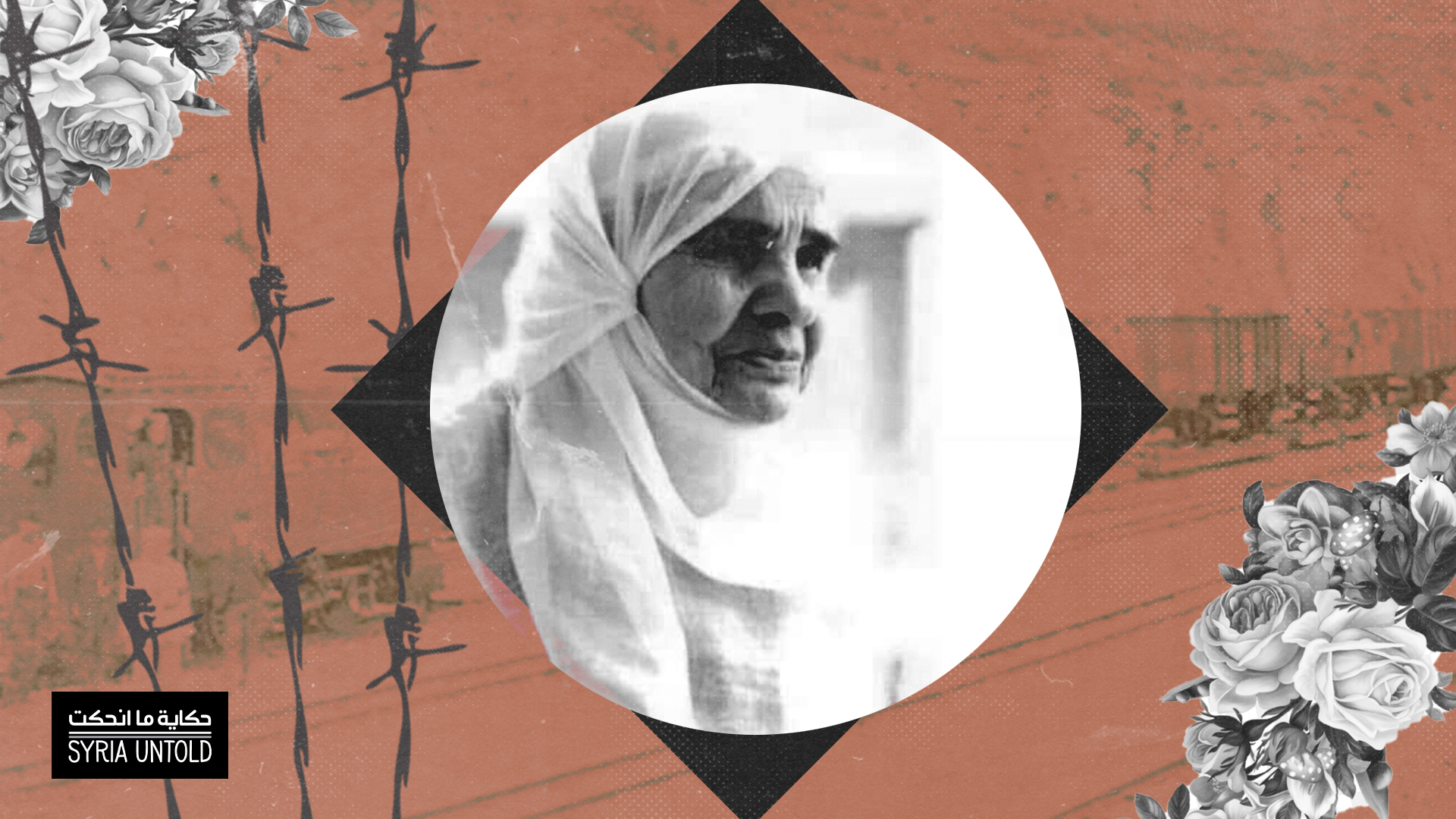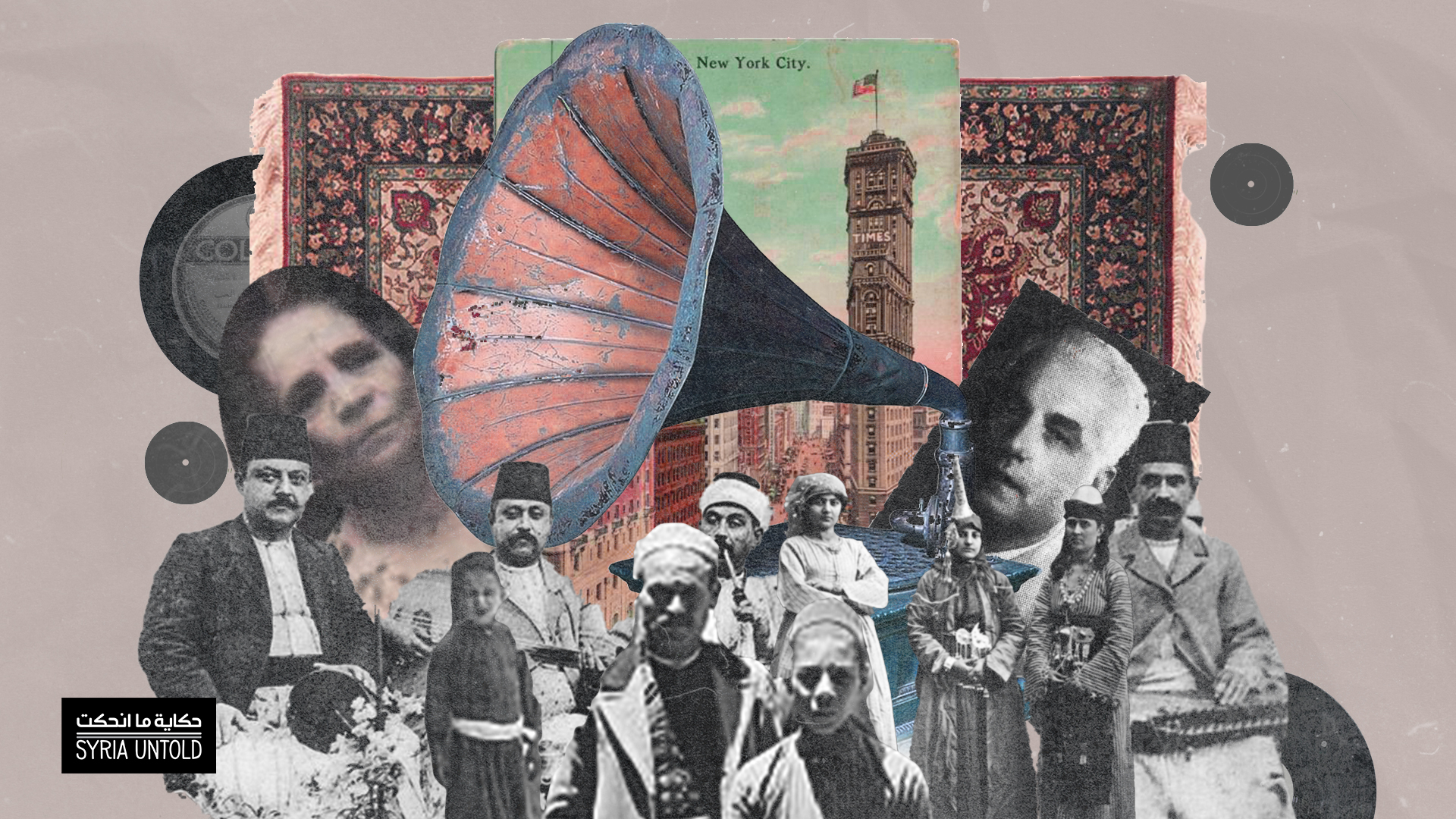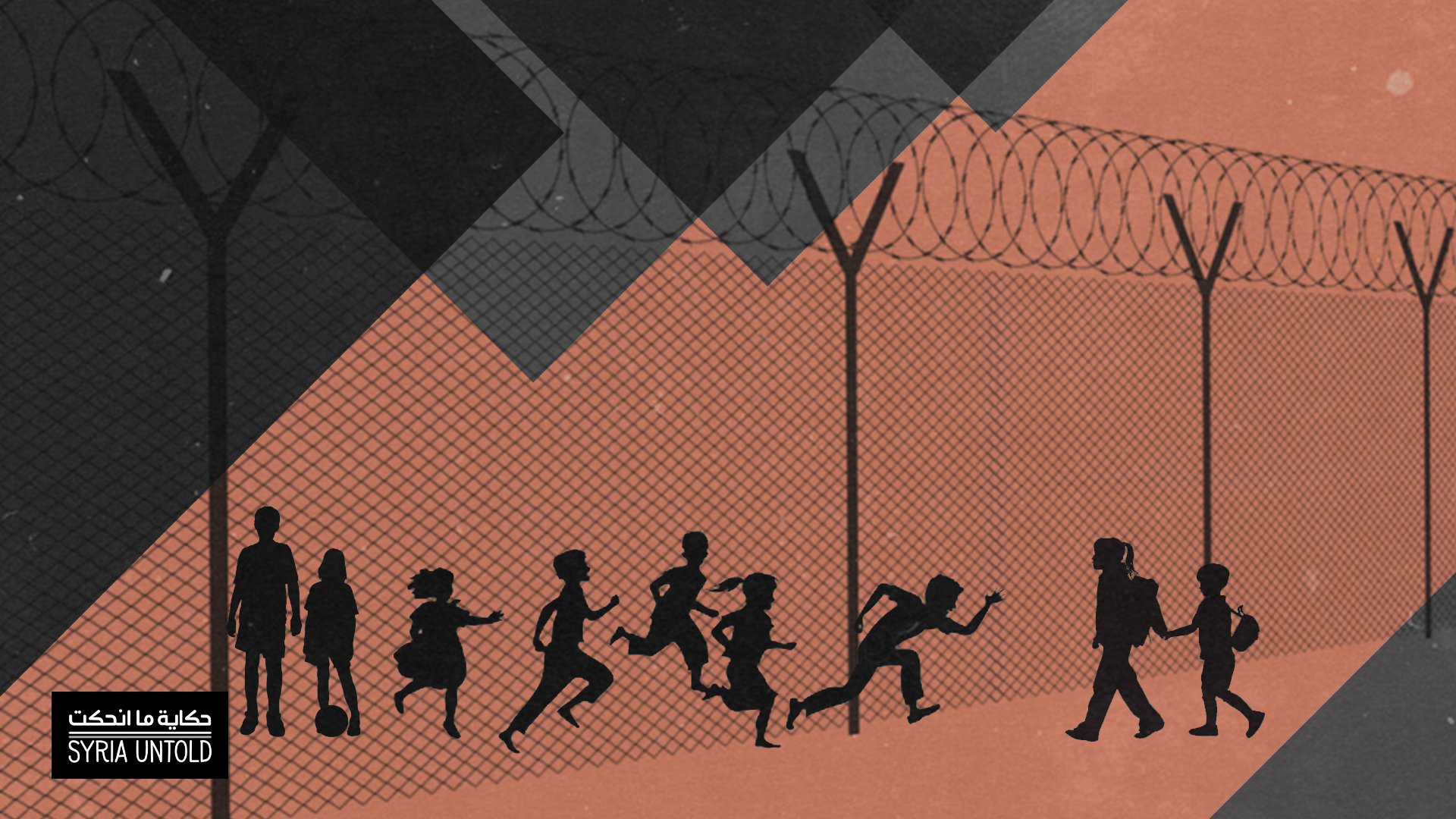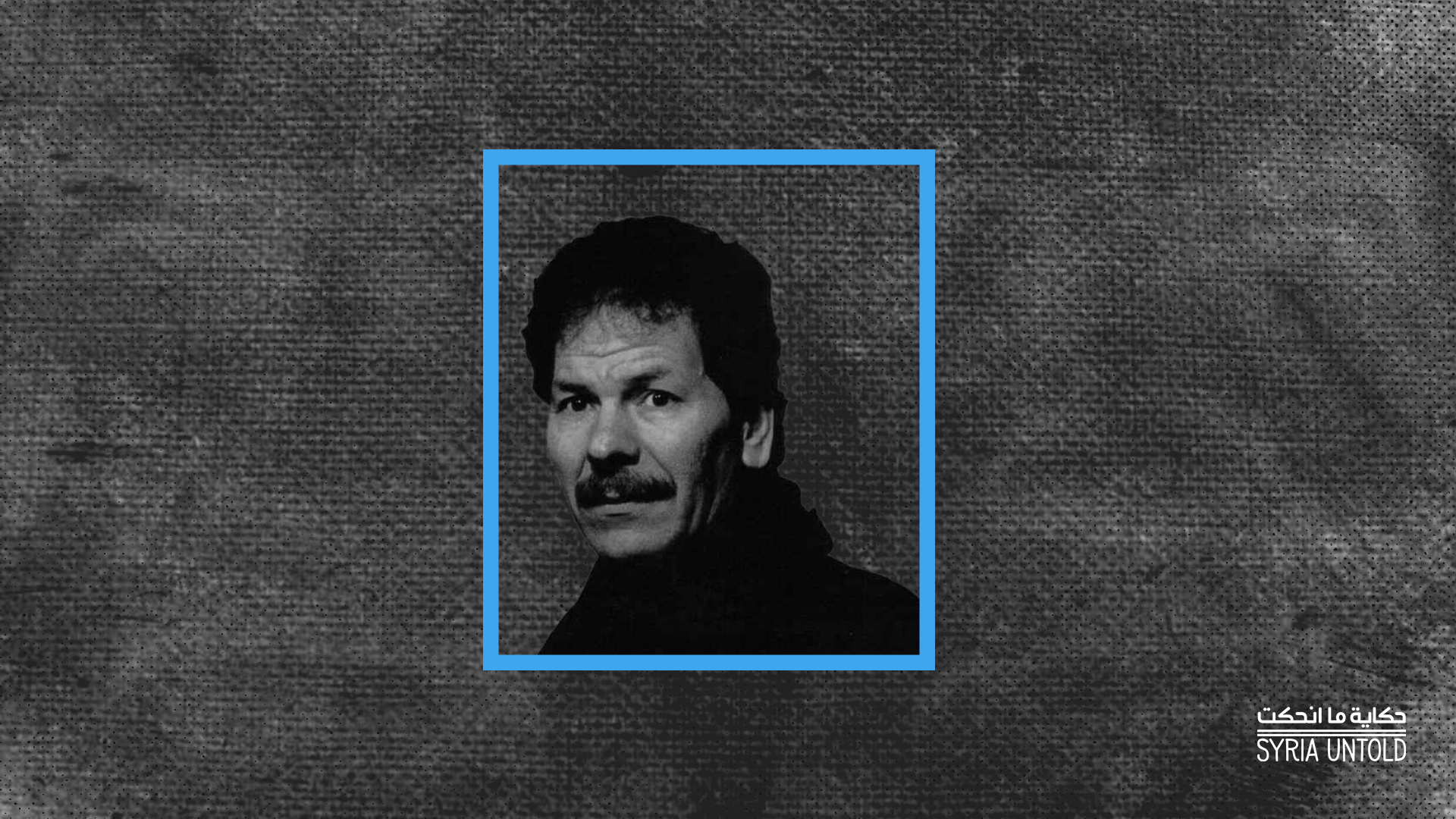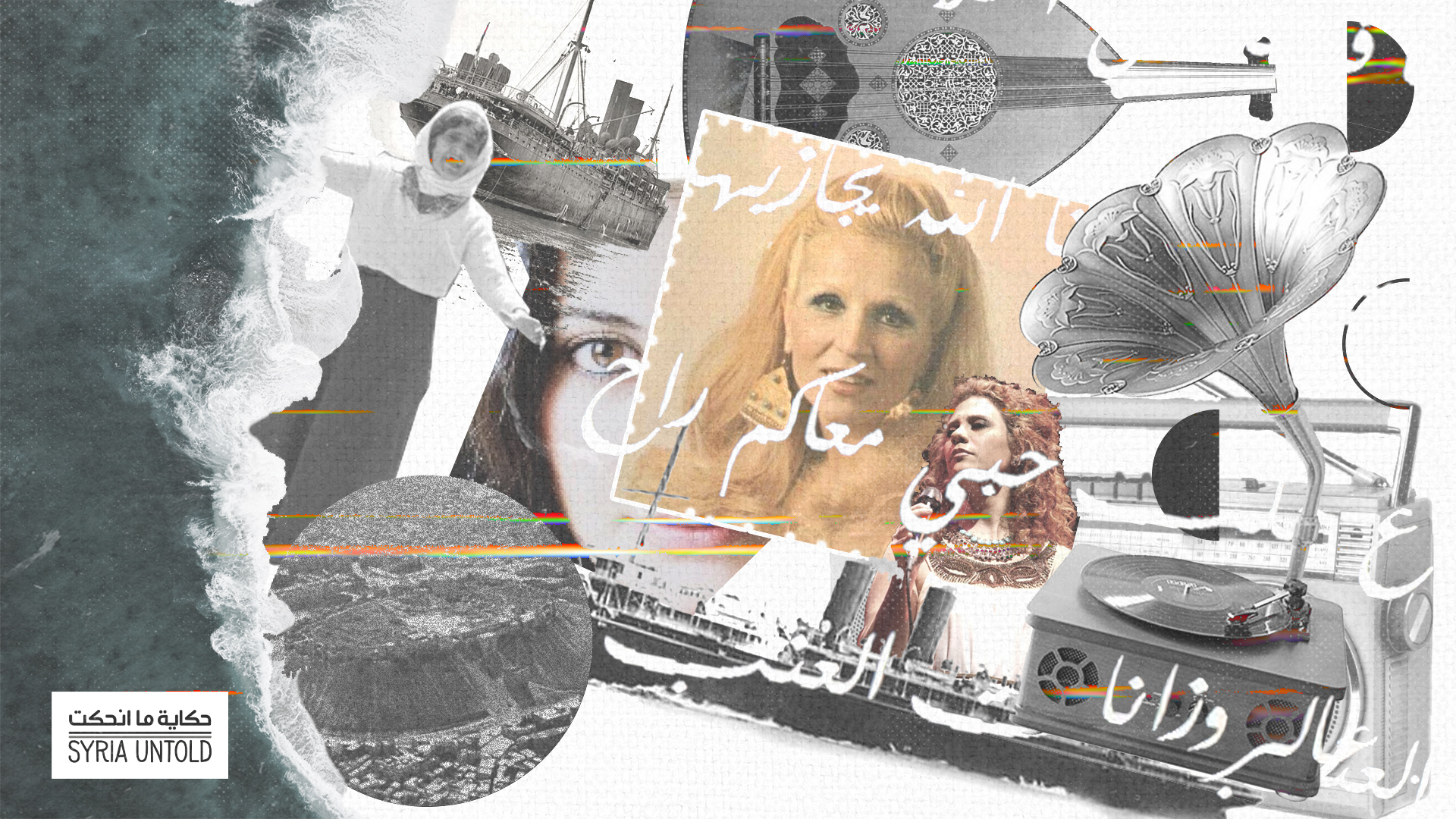Read this article in its original Arabic here.
The world seemed more beautiful—at least, that’s how it looks in my memory. I remember the streets of Qamishli when I was a child, living with my family in that distant city. I still think of Qamishli as being so far north, despite the fact that I now live in the true North, in the Earth's northern hemisphere.
Qamishli seems so far, far from everything. Geographically, and in memory. I lived there for six years, from when I was a mischievous six-year-old until I was 10, at the precipice of a difficult youth. My first memories are of Qamishli. I think about my first home every time I’m reminded of that city, and I’d even argue that my memories transport our other house in Damascus from its real location and plop it down onto one of those streets in the western neighborhood of Qamishli.
I know that Qamishli was my beginning—the first images I saw, the first things I experienced in life, my first football skills and personal relationships. And what the world wanted to show me at that time in my life was, more than anything, music.
In Qamishli, and in Syria’s northeastern Jazirah region in general, there is a mix of people: Arabs, Kurds, Assyrians, Circassians, Chaldeans, Turkmen, Armenians. There are Sunni and Shia Muslims and other Islamic sects, Christians of different stripes, Jews, Yazidis and atheists, tribal clans, Bedouin and city folk, and almost every type of human for whom the Middle East is home. They have lived side by side for hundreds (or perhaps thousands) of years, interlaced with love, brotherhood, civil wars and all the problems those bring about. Their most shared languages are Kurdish, Arabic and Syriac, in varying dialects.
Now that I have grown up and moved far away from my home, I try sometimes to use the words that I spoke when I was a child running in the streets of Qamishli.
This peculiar mixture of people, who live in an environment of poverty and social ills, created a cultural heritage in Qamishli that sets itself apart from nearby cities like Raqqa, Deir ez-Zor, Diarbakir and Mosul, despite being historically (and still to this day) affected by the goings on of those places. But Qamishli developed differently, as it was founded in modern times. It is a modern city, built in the early 20th century during the French occupation of Syria.
And now I return to my memories and search for the songs that were (and still are) heard in that distant city.
Mohamad Al Roumi: Cinema is always necessary
11 March 2022
Sultana’s story
10 July 2021
Kurdish music
The king of Qamishli is Muhammad Sheikho. No one disputes his throne to this day, despite him having died more than 30 years ago in 1989. They say that Qamishli never before saw a funeral like Sheikho’s. Maybe the only rival was the funeral they held for Al-Jihad Club football star Haytham Kajjo, who died in a car accident in 2002, but Muhammad Sheikho’s funeral was like no other. People were said to have come from different corners of Kurdistan to bid farewell to their popular hero, whose songs once rang out from all parts of the region.
That skinny man, who in life made trouble for the chauvinistic authorities in charge of Syria, Iraq and Iran, kept singing and teaching music until the day of his death. People still recite his moving patriotic songs until this day.
Another popular singer was Saeed Youssef, who recently passed away. His songs gained fame among his own generation and spread to later ones, as well. And I’ve heard it said that Muhammad Abdelkarim, the so-called “Prince of the Buzuq,” gave Saeed Youssef his own buzuq before he left our world, saying that the instrument would not die so long as Youssef played it.
Other musicians also attained fame and attention in Qamishli. There was the beloved Kurdish singer Rashid Sufi, whom they called the “Mohamed Abdel Wahab of the Kurds” for his oud skills and his tarab-style performances of difficult, classical Kurdish poems. And I cannot forget the most famous of those Kurdish singers, Şivan Perwer, who became known for his patriotic songs. Musician Samih Shaqir sang to him once: “I have a friend from Kurdistan, and his name is Şivan.” Perwer’s wife, Golestan, also had her share of fame, as did Nizamettin Aric and Aram.
From the younger generation there were the singers Şeyda, Rojen, Sefqan Orkêş, Zakaria Abdullah and many others who all became famous; I can’t list all of their names here.
They all had their share of listeners, but few became quite as famous as Ciwan Haco, who came from the town of Tarbasbih in the countryside outside Qamishli. He has lived as a refugee in Germany for many years and was banned from reentering Syria. Haco was perhaps the most beloved singer in Kurdistan; it was said that one million people attended one of his concerts in Turkish Kurdistan, in the city of Batman. A student of Muhammad Sheikho, Haco revived Kurdish hertigate while modernizing Kurdish music and introducing new instruments into the genre, creating an entirely new sound. He produced a new world of music. The Kurds, and Syrian Kurds in particular, have memorized all of his songs.
Arab music
What I discuss here are the songs that sprang up locally—of course, people in and around Qamishli all heard the songs of Fairuz, Umm Kulthoum, Sabah Fakhri, Amr Diab, Kadim Al Sahir and others who became famous across borders.
People in Qamishli also listen to Arabic-language music from nearby Arab communities: the mowlieh music of Raqqa, the tunes that spread among the Arab tribes along the banks of the Euphrates River from Deir ez-Zor all the way to Iraq, and the songs sung by goat herders and farmers working the fields that dot Syria’s northeastern Jazirah region.
Songs of nostalgia in New York City’s long-lost ‘Little Syria’
05 March 2021
Finding fraternity thousands of miles from home, in Syrian São Paulo
25 February 2022
As I dive more deeply into my old memories, I recall one song in particular that spread like a wildfire. It was called “Warda,” and to this day most people don’t know its origin. The lyrics, heard in every home, dukkan corner shop and stereo:
Warda has come, and how sweet it is
She paints her lips red and straightens her bangs
I extended my hand to take off her clothes
She said, “Cut the buttons off my dress”
I said, “I love you, and love is not a sin”
She said, “Love me romantically.”
جتني وردة وش محلى هالجيّة
مكثرة الحمرة والغرّة مكويّة
مديت ايدي جريت الهِبريّة
گالت گطَّع زرار الگلابيّة
گِلت أحبج والحب مو خِطيّة
گالت حبني حُبّة رومنسيّة
There was another song that became popular in 2002, after the Al-Jihad Club football star Haytham Kajjo died. Every house had at least one CD containing this song, which laments his death:
Should I console Al-Jihad Club,
Or should I console myself?
Should I console the people of the Jazirah,
Or should I console myself?
The image of Haytham Kajjo today
does not leave my mind.
أعزي نادي الجهاد
مدري أنا أعزي حالي
أعزي أهل الجزيرة
مدري أنا أعزي حالي
صورة هيثم كجو اليوم
ال مَعَد تفارگ خيالي.
Mardalieh music
These songs are in Arabic but, still, I put them in a category of their own because of the uniqueness of the dialect and the words they use. Here, singers use the phrase “mu qultulik?” in place of the more formal “alam aqul lak?” (“Didn’t I tell you?”). That’s the Mardalieh dialect, whose name refers to the city of Mardin in present-day southeastern Turkey. Many Qamishli residents came from Mardin decades or even centuries ago, carrying their beautiful dialect along with them. The speakers of this dialect now live in most parts of Qamishli, Hasakah and the surrounding countryside. When I was growing up, I knew that their accent was close to that of Mosul in northern Iraq.
Still, this dialect is unknown to most Syrians. I don’t remember ever hearing a Mardalieh song on Syrian radio or watching a TV series where one of the characters spoke in the dialect, despite its sweet sound and its closeness to the heart.
Now that I have grown up and moved far away from my home, I try sometimes to use the words that I spoke when I was a child running in the streets of Qamishli, when I spoke two languages that fused into my mother tongue: Kurdish in the Kurmanji dialect and Arabic with a Mardalieh dialect. I lost them in favor of the so-called “white dialect,” the standard Syrian dialect fabricated by those in Damascus who are not originally from the capital city.
I don’t remember ever hearing a Mardalieh song on Syrian radio or watching a TV series where one of the characters spoke in the dialect, despite its sweet sound and its closeness to the heart.
But before all that, I remember the voice of singer Abboud Fouad echoing from homes and restaurants, and his image posted on all the cassette shop windows as one of the most famous Mardalieh singers. Many other musicians sang the Mardalieh songs, which even made their way to Lebanese singers, who sang them in their own imperfect mix of Beiruti and Mardalieh accents.
In Assad’s Syria, school is prison
18 November 2021
And more recently, the musician Ibrahim Keivo gained prominence, especially in Europe where he has performed at many concerts. He took it upon himself to revive the heritage of the Syrian Jazirah, singing in Kurdish, Arabic (and the Mardalieh dialect), as well as in Syriac and Armenian. It is impossible to see Keivo perform without watching a wave of joy sweep over the audience. You almost feel as if he is the Jazirah’s ambassador of joy, as you listen to him sing in his strong, resonant voice:
Let us sing tonight, let us rejoice tonight.
Let us say tonight that sadness has no place.
My hand intertwines with yours, so come dance the dabke.
In truth, I love you. I swear, it is no joke.
Let us sing tonight, let us rejoice tonight.
Let us say tonight that sadness has no place.
Loving birds we became, with our happiness, we grew up.
In the sky of our love, we fly, and in a world of lovers, we live.
Let us sing tonight, let us rejoice tonight.
Let us say tonight that sadness has no place.
خَلّونا الليلة نغني خَلّونا الليلة نفرح
خَلّونا الليلة ت نقول للحزن ماله مطرح
إيدي وإيدكي مشتبكة قومي يلّا عالدبكة
بالصدق أنا حبكي والله أنا مو أمزح
خَلّونا الليلة نغني خَلّونا الليلة نفرح
خَلّونا الليلة ت نقول للحزن ماله مطرح
طيور محبة كِلْ صرنا بفرحتنا كِلْ كِبرنا
وبسما محبتنا تَ نطير بدنيت عشاق نسرح
خَلّونا الليلة نغني خَلّونا الليلة نفرح
خَلّونا الليلة ت نقول للحزن ماله مطرح
A conclusion of sorts
Music is perhaps the greatest thing we humans have created in our history. It is the sound of our souls, the language of communication between different races, colors and cultures. Music unites what war divides. In my short life I’ve seen thousands of people dancing to songs they didn’t know, in languages they had never heard before, gathering to hear music from faraway countries about which they know little. What I want to say, or rather what I’m trying to say, is that in this region, the Jazirah in northeastern Syria, there is a dazzling beauty that shows itself in the hugely diverse songs of its residents. This beauty deserves more than the suffering it has been dealt. It deserves to be shown to the world and to shine, its people to live a life worthy of them.




